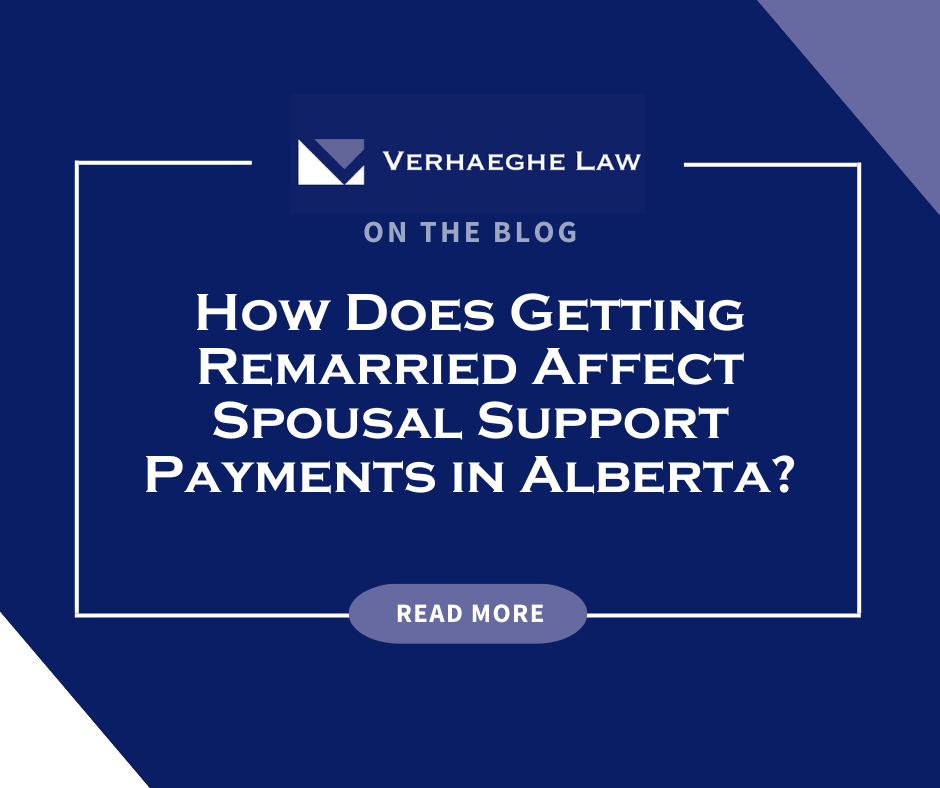How Does Getting Remarried Affect Spousal Support Payments in Alberta?

A marriage or adult interdependent relationship often involves the sharing of finances. In some cases, one partner may fully support the other. If the relationship ends, the dependent partner may need support as they transition into financial self-sufficiency. This is where spousal support may come into play, with a payor spouse providing financial support to their former partner.
If a payor spouse who has been ordered by court or through a divorce or separation agreement fails to meet their spousal support obligations, they may land in legal trouble. Contact our Edmonton family lawyers today to discuss your particular circumstances, and learn more about your rights and obligations regarding spousal support.
What is Spousal Support?
Spousal support is a payment one former spouse makes to the other following their separation. Both the Divorce Act of Canada and the Family Law Act of Alberta outline its objectives as follows:
- To appreciate the economic consequences, both advantages and disadvantages, to each spouse as a result of the relationship ending;
- If there are children involved, to divide financial costs connected with their care, in addition to child support;
- To reduce financial hardship that may have been caused by the relationship’s end; and
- To assist in both spouses becoming financially independent within a reasonable timeframe.
A common example may be where one spouse has been financially supporting the other for a long time. When the partnership ends, the dependent spouse may need to seek further qualifications, such as re-enrolling in school, in order to pursue work. If they have been out of the job market for many years, they may require financial support while they make this transition.
Notably, spousal and partner support is not intended as a punishment, nor a reward. The actions of both spouses, positive or negative, are not taken into consideration when deciding whether or not spousal support is to be granted. The decision is made based on factors such as the length of the relationship, the functions each spouse performed during the relationship, as well as other specific conditions and/or needs of each spouse.
Each circumstance is unique. Contact our Edmonton family lawyers today to discuss what may apply in your case.
When Does Spousal Support End?
In Alberta, there is no set end for spousal support. The unique factors of each case will determine how long spousal support is to be paid. The Spousal Support Guidelines offer that in a relationship with no children, spousal support should go on for between six months to a year for each year that the spouses lived together. If the length of the relationship exceeds 20 years, or if their years of cohabitation plus the recipient’s age exceeds 65, then the payments are indefinite.
If there are children involved, the Spousal Support Guidelines advise the same guidance, with additional provisions for partnerships shorter in length. In a shorter marriage or adult interdependent relationship with children, spousal support may end when the youngest of the children begins or finishes school. There can be a wide range in the timing of spousal support, in which, ideally, the separating spouses will agree. Otherwise, a judge may order a decision based on the particulars of the case.
What Happens to Spousal Support When You Get Remarried?
Spousal support may be varied, or changed, through an application to the court. If there has been a material change in circumstances for the payor or payee spouses, affecting either their ability to pay (in the case of the payor) or their need for support (in the case of the payee), then there may be grounds for terminating spousal support. Remarriage or re-partnering can be an example of a material change in circumstances.
If a payor spouse gets remarried or enters into a new adult interdependent relationship, they are usually still obligated to pay spousal support to their former spouse.
If a payee spouse gets remarried or enters into a new adult interdependent relationship, their eligibility to receive spousal support may be affected. Getting remarried does not automatically end the spousal support - however, upon reevaluation it may be reduced, suspended, or terminated. Decisions are made case by case. Guiding factors typically include the standards of living in this new partnership, the age of the payee spouse, the new spouse’s income, and the likelihood of the payee becoming financially independent.
Contact Our Edmonton Family Lawyers Today for a Consultation
The nuances of spousal support payment can be challenging to understand, especially when one or both of the spouses gets remarried. To learn more about your legal rights and obligations, and see what support may be available to you, contact our Edmonton family lawyers today to schedule a consultation.
** Please note, this article is intended as a general overview on the subject of family law, and is not intended to be legal advice. If you are seeking legal advice, please consult with an Alberta family lawyer.
